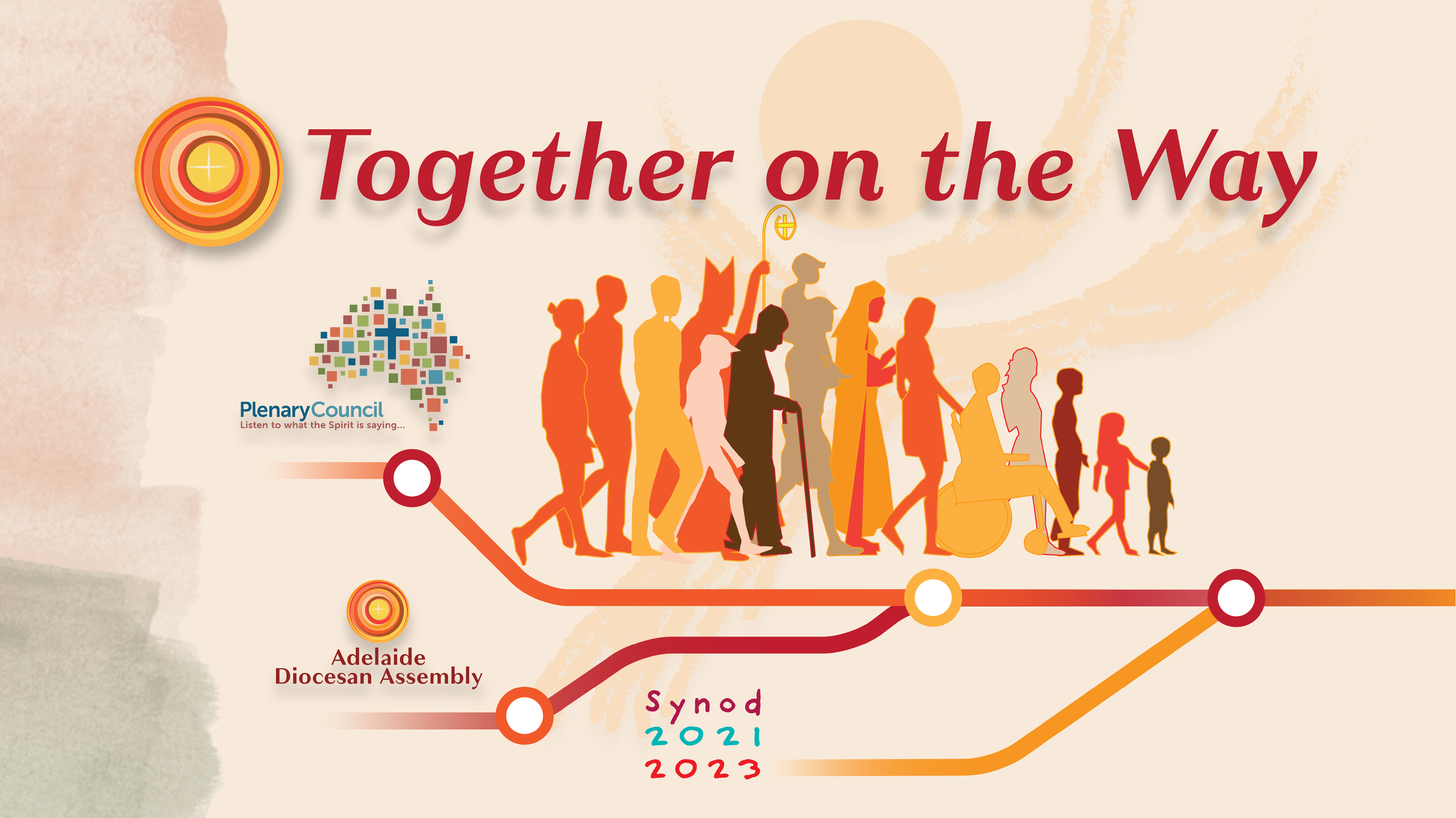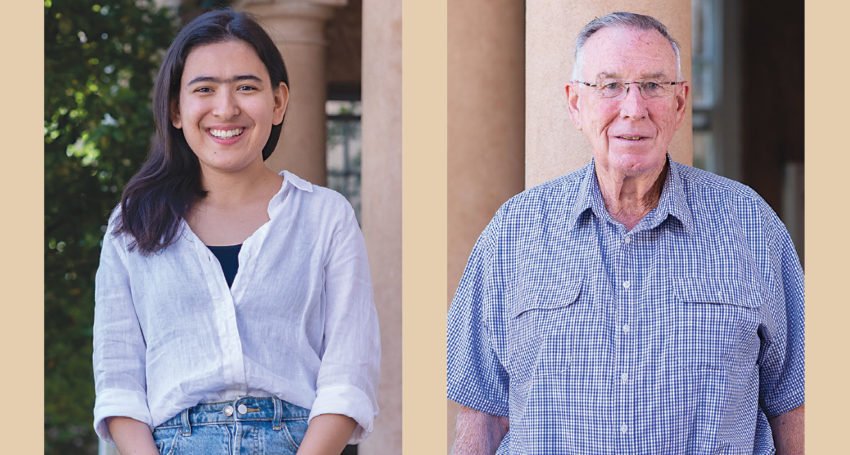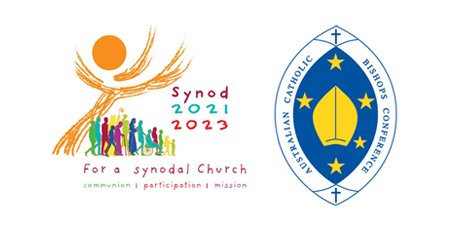Latest News
Preparing the way for Diocesan Assembly
In a letter to the faithful, Archbishop O’Regan said the 2022 Assembly on October 21 and 22 would be informed by the recommendations and subsequent feedback from the 2021 gathering, as well as the discernment of the Diocesan Pastoral Council and the Plenary Council outcomes.
“The 2022 Diocesan Assembly will build on the 2021 recommendations and provide opportunities for formation, skill-building and strategic planning,” he wrote. “It will also be an opportunity to look at the results of the Plenary Council and how they will be incorporated into local and Diocesan life.”
Archbishop O’Regan said assemblies would become a “regular fixture of Diocesan life” with at least one more planned for 2023. “After that, assemblies may occur every other year with parish or deanery assemblies encouraged on the alternate years,” he said.
Peter Gates, deputy national director of Catholic Mission, the official international mission aid agency of the Catholic Church, will be the keynote speaker at the 2022 Assembly.
A member of the facilitation team for the Fifth Plenary Council for the Catholic Church in Australia, Mr Gates has worked in leadership and management positions across a broad section of key organisational responsibilities and departmental roles. He also has served as board member for a number of not-for-profit organisations.
Diocesan Assembly steps up a gear
Last month the Archdiocese distributed a ‘toolkit’ of resources including a workbook for communities to use as they discern the 255 recommendations arising from the 2021 Diocesan Assembly.
Over coming months, parishes, communities and schools will choose their top three recommendations for what the Archdiocese needs to focus on, as well as the top three recommendations for their own local context.
Following that, communities will work to develop key strategic actions and goals to achieve the recommendations.
Transforming from the Inside
In our continuing series on the Interim Diocesan Pastoral Council, we asked Georgia Steller and Tony Roach about their involvement in the Church, why they nominated to be on the Council and their hopes for the future.
Hearing the Voices of Many
In our continuing series on the Interim Diocesan Pastoral Council, Holly Roberts and Fr Manu Kumbidiyamackal explain why they nominated to be on the Council and share their hopes for the future.
Playing the timely tune, singing the timely song
The Plenary Council, the most significant event in the life of the Catholic Church in Australia for 80 years, comes to its conclusion in early July in Sydney, with the second session.
For most people who have been on the journey of these past six years it has been a fruitful time. My own experience is that while the process was unfamiliar to me, it is not an unfamiliar pathway of the Church over 2000 years. I have found that one can only understand what synodality is all about when you are part of it. Just because it is unfamiliar; just because it has called us to learn new, or forgotten skills such as listening, collaboration and discernment; just because it is not perfect, does not mean that the process is wrong or that we should as those signs on the highway say ‘Go back wrong way’. It is a legitimate pathway forward.
Plenary members prepare for second assembly
Local members are meeting together for two sessions of “discernment and reflection” as they prepare for the second assembly of the Fifth Plenary Council of Australia being held in Sydney in July. With the motions for the assembly now released publicly for discussion, members gathered at the Archbishop’s House on June 4 and are scheduled to meet again on June 15 with the broader members of the diocese.
The Adventure of Journeying Together
Family road trips tend to be the stuff of lore. Growing up in the American Midwest, my family of six regularly piled into our Ford Econoline conversion van to drive several hours across state lines to visit grandparents and cousins. Even the short trips required planning, packing and multiple references to the road atlas. As soon as we climbed into the van, dad would lead us in a prayer for a safe journey and off we went. Stops were frequent – petrol top-offs, toilet breaks, roadside cafes, or the need to blow off some steam after an argument. There were the occasional flat tyres or some other mechanical failure that would force us to delay our trip. Sometimes weather events like a blizzard or tornado would force us to turn around and go back home or spend the night in a roadside motel.
See, Judge and Act in today’s world
There are tensions in our Church life today in Australia. The processes of consultation, listening, dialogue and discerning in preparation for the Plenary Council, our own Diocesan Assembly and now for the worldwide Synod in 2023 have highlighted differences amongst us in responses to the challenges facing the Church. How can we be united in facing these challenges? Use the See, Judge and Act process.
We need to begin with the real situations of people’s lives today. We need to listen, dialogue and grow in understanding of others. We accept and value human experience. We don’t start from what people should be doing or how they should be living. We can’t start from the way things were in the past and just turn the clock backwards. We value and accept the ‘see’ and ‘the truth of experience’.
Hope and challenge as second assembly approaches
I am looking forward to the week and expect it to be both a challenge and an occasion of great hope. Let me explain those two things.
First, the challenge. Our Church is diverse – culturally, socially, and in terms of our various approaches to faith. Sure, we are ‘one in Christ Jesus’, but we have different insights into the faith, and see ourselves called in different directions. So, the members of the Plenary Council will be challenged to come to agreement on ‘what the Spirit is saying’ to the Church. The process of dialogue will involve each member listening deeply to the perspectives of others, attempting to understand the world on the others’ terms. Real dialogue is intense and sometimes exhilarating. But it won’t be perfect.
Dedicated to Mission
In the continuing series on the Interim Diocesan Pastoral Council, we ask Peter Laffan and Sr Mary Ryan rsj about their involvement in the Church, why they nominated to be on the Council and their hopes for the future.
Shaping the Future
The Adelaide Archdiocese has established an Interim Diocesan Pastoral Council to discern and implement recommendations from the Diocesan Assembly and the outcomes of the Plenary Council. In the first of a series featuring the members of the Interim Council, we introduce Geoff Redden and Sharina Rabusic.
What’s in it for us?
We drown in information today. What was so brilliant about the consultation and discernment phases of the Plenary Council and our own Diocesan Assembly was the role of discernment and asking that vital question, ‘What do you think God is asking of Australia at this time?’.
If we are not still asking that question then we might be a little bit stuck on that previous question, ‘What’s in it for me?’. While not a bad question, it is inadequate. We need the ‘What’s in it for us?’ so continuing to ask ‘What do you think God is asking of Australia at this time?’ is vital.
Young Share Vibrant Faith
More than 100 young people shared their experiences of faith and hopes for the local Church at the Diocesan Youth Assembly held at Nazareth College, Findon Campus, last month. The day included a panel discussion with young participants in the recent Plenary Council of Australia and Diocesan Assembly, group conversations, prayer and music.
Catholic Office for Youth and Young Adults coordinator Peter Bierer said what made the day so special was the “respect and acknowledgment of the diversity of experiences of the participants”.
Archbishop O'Regan elected as delegate to Rome Synod
Adelaide Archbishop Patrick O’Regan is one of two Australian bishops chosen to participate in the XVI Ordinary General Assembly of the Synod of Bishops in Rome in October 2023.
Local voice on Vatican youth body
The former Sacred Heart College student is currently the pastoral associate (students) at Australian Catholic University’s Blacktown campus but previously worked as a youth minister in Adelaide and is a member of the Plenary Council for the Archdiocese of Adelaide.
Madeline, 25, has been actively involved in the Australian Catholic Youth Festival and has a strong interest in social justices issues.
“I was surprised when contacted by the Dicastery and humbled by the invitation to be a part of the international youth advisory body,” Ms Forde said.
What happened at the Plenary Council
There was a shift from the Church of the bishops to the Church of the people and bishops. It gave Catholics a platform and they found their voices. The events of the Plenary Council were online, available to see and hear for anyone who was interested.
Our previous experience of similar Catholic gatherings was proceedings behind closed doors with official announcements and reports later. If we were lucky, leaks occurred over time to reveal what really went on.
Communal discernment a way forward
The first general assembly of the Plenary Council, meeting October 3-10, was an extraordinary experience. About 300 members of the Catholic community in Australia engaged in a process of communal discernment involving people from almost every sphere of Church life including laity, deacons, bishops and priests.
‘If you knew the gift of God’
Within the space of a month, three significant events have happened within our church: our local Diocesan Assembly, the first session of the Fifth Plenary Council of the Catholic Church in Australia and the beginning phase of the next Synod of Bishops to be held in 2023 on synodality.
Plenary Council Updates
A round-up of articles about the Plenary Council from the Southern Cross Newspaper.
Sharing the Faith
A recurring theme in the discussions taking place during the Diocesan Assembly this month was the absence of young people and families in our parishes. As one parish priest bluntly put it: ‘I am burying an awful lot of my parishioners and I don’t know how I am going to replace them’.
Not that this is anything new – we have been talking about the need to get young people into the pews for decades now. It’s just that as every day passes, the problem becomes more urgent.
We can be tempted to look at ways to make parish life and liturgy more ‘fun’ and appealing to young people, but that’s not necessarily the answer according to Charlie, a 20-year-old pastoral coordinator with one of our parishes and a participant at the assembly.



















